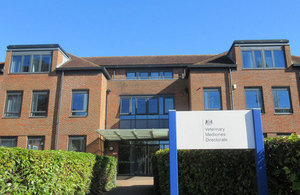Poor accounting practice in charities to be referred to professional body
The Charity Commission can now refer cases of poor professional practice by accountants and finance professionals to ACCA, (the Association of Chartered Certified Accountants). The two bodies have signed an agreement on the sharing of data, which facilitates the referral of concerns about accountancy services provided to charities.
It comes as part of the regulator’s wider work with the accountancy and audit profession aimed at raising the standard of financial reporting by charities and encouraging the highest professional standards amongst practitioners working with the charity sector. The move follows the launch of the external scrutiny benchmark in August 2019.
The new undertaking establishes a process for sharing information that is lawful, safe and secure, and more generally provides a framework for closer working between the two bodies, both at strategic and operational levels.
The undertaking allows, in certain circumstances, for the Commission to share details about individual ACCA members with their professional body; ACCA can ultimately institute disciplinary proceedings against a member. The document also provides for ACCA to share information with the regulator.
The Commission’s ultimate purpose in signing up to the agreement is to provide a mechanism to alert ACCA to poor practice and, by raising the standards of ACCA practitioners undertaking external scrutiny work for charities, help charities comply with their accounting framework and legal requirements.
Nigel Davies, Head of Accountancy Services at the Charity Commission, said:
I am delighted that we now have this clear framework in place, which will help both the Commission and ACCA better serve the public interest by promoting high standards of accountancy practice in and for charities.
We expect finance professionals working for charities to display both probity and high standards of professional expertise and competence. Sadly, some of our recent accountancy reviews indicate that some finance professionals are unaware of important changes to rules on accounting, the requirements for independent examination and some of the reporting duties for those examining or auditing in charities. I am confident that by working together, ACCA and the Commission will raise the standards of the profession and the awareness of charity accounting to assist charities to thrive and inspire trust.
Laura Murphy, Standards Manager of ACCA, said:
Signing this agreement reaffirms our strong commitment to working with the Charity Commission. The new agreement builds on the firm foundations established between our organisations. Through this partnership, ACCA aims to support our members working in the charity sector to uphold the highest of ethical and professional standards, meet their statutory responsibilities and act in the public interest.
The new agreement does not compel either party to share information; the Commission stresses that in certain circumstances, for example where doing so might undermine ongoing investigations, the regulator remains free to withhold information from other parties.
The Commission has similar agreements in place with other organisations. In 2018, the Commission published a Memorandum of Understanding it had agreed with the Solicitors Regulation Authority.
